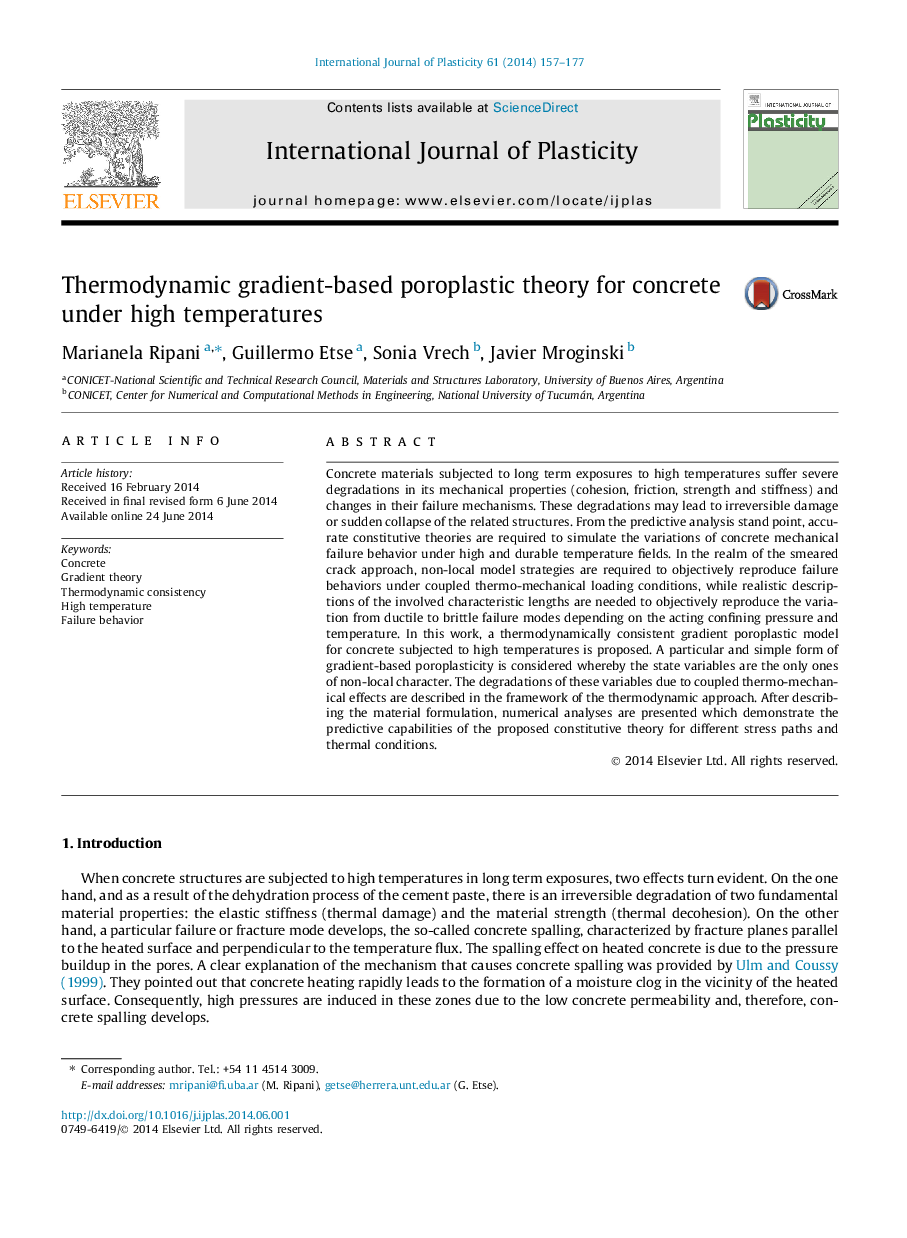| Article ID | Journal | Published Year | Pages | File Type |
|---|---|---|---|---|
| 786128 | International Journal of Plasticity | 2014 | 21 Pages |
•A thermodynamically consistent model for porous materials under high temperatures is proposed.•Non-local effects are considered in the post-peak regime.•Post-peak behavior is divided into a fracture-energy and a gradient-theory based terms.•Combined effects of confinement pressure and high temperatures are analysed.•Regularization capabilities of the proposed non-local model are demonstrated.
Concrete materials subjected to long term exposures to high temperatures suffer severe degradations in its mechanical properties (cohesion, friction, strength and stiffness) and changes in their failure mechanisms. These degradations may lead to irreversible damage or sudden collapse of the related structures. From the predictive analysis stand point, accurate constitutive theories are required to simulate the variations of concrete mechanical failure behavior under high and durable temperature fields. In the realm of the smeared crack approach, non-local model strategies are required to objectively reproduce failure behaviors under coupled thermo-mechanical loading conditions, while realistic descriptions of the involved characteristic lengths are needed to objectively reproduce the variation from ductile to brittle failure modes depending on the acting confining pressure and temperature. In this work, a thermodynamically consistent gradient poroplastic model for concrete subjected to high temperatures is proposed. A particular and simple form of gradient-based poroplasticity is considered whereby the state variables are the only ones of non-local character. The degradations of these variables due to coupled thermo-mechanical effects are described in the framework of the thermodynamic approach. After describing the material formulation, numerical analyses are presented which demonstrate the predictive capabilities of the proposed constitutive theory for different stress paths and thermal conditions.
